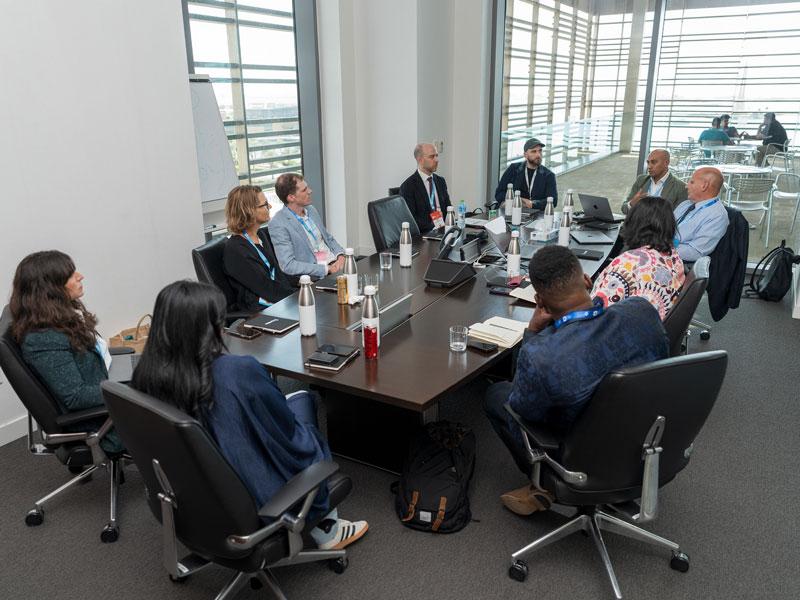While the concerns around AI in higher education were once focused on how it might lead to academic misconduct, the attention is shifting to how AI can support the process of learning. “We’ve seen a massive transformation in terms of what it means for academic integrity, positioning tools like Turnitin, less as a punitive tool but part of the conversation on how you enhance student learning,” said Chukwudi Ogoh, senior academic strategy consultant at Turnitin, during a round table, held in partnership with Turnitin, at the 2025 THE World Academic Summit.
James Thorley, vice-president for APAC and EMEA at Turnitin, echoed that this is a notable trend, with universities increasingly looking to prove that the process of learning has occurred: “This could mean a mixture of practical or oral assessments, but writing is still a key part of it. The conversation needs to shift from detecting misconduct to recognising learning and understanding where, how and to what extent students have demonstrated and validated their learning along the way. It is ultimately about tracing the process of learning towards achieving the intended outcomes.”
At the University of Salford in the UK, the educators seek to support learning using modern tools. To deliver inclusive learning and assessment, the key will be how broadly these tools can be integrated into the curriculum and how openly available they are for use, said Vish Maheshwari, associate dean of academic at Salford Business School. “The obstruction we have is that not everyone is confident in using AI tools. Some are using it for the sake of using it.”
It's important to know when, where and how to use AI, said Wafa Almansoori, interim president and provost of American University of Bahrain. Almansoori highlighted the importance of clear setting expectations regarding learning outcomes: “We need to be clear about what learning we want to take place in that specific assessment and what we want students to get out of that and what tools are available.”
Charles Hains, academic director at Hotel and Tourism Management Institute in Switzerland, spoke about the need for assessment formats that demonstrate students’ knowledge. “We have a heavier weighting on the oral defence of their work. For example, in our tourism class, we changed the assessment to a podcast where students talk about the topic. When they’re discussing it, you can see they have learnt,” Hains said.
Faculty must set an example for the responsible use of AI, said Mariam Malik, marketing lead at Lahore University of Management Sciences. “The golden rule is to inform people where the work came from,” said Malik, adding that students need to acquire a feel for the ethics of using AI, as this will be important for employability. Students and faculty need to discuss the process of writing and learning more openly.
“We’re not paying enough attention to what we're using in terms of the process of learning,” said Maryke Luijendijk-Steenkamp, executive director at Neohorizon School of Business in the United Arab Emirates. With AI, everything is at students’ fingertips, which makes it crucial to emphasise that AI is not always right and educate students on the importance of verifying the information they receive. AI is a great tool, but there needs to be more open conversations about the nuances around it, she concluded.
Find out more about Turnitin.


comment